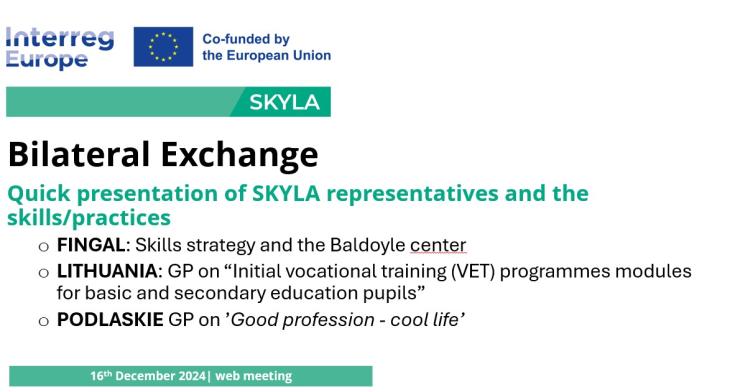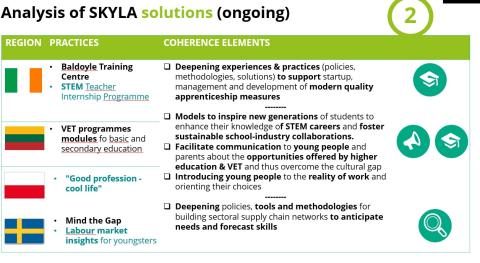Strengthening Apprenticeship and Vocational Training

On 16 December, the SKYLA project held a bilateral exchange meeting, bringing together expertise from across Europe to address policy improvements in Tuscany. This initiative aimed to refine and enhance the Regional Programme (RP) ESF+ 2021-2027, particularly under the priority of Education & Training. The discussions focused on best practices from Fingal (Ireland), Lithuania, and Podlaskie (Poland) to address key challenges identified in Tuscany's territorial and gap analyses.
Tuscany’s Identified Needs
The analyses conducted in Tuscany highlighted two main areas requiring intervention:
1. Awareness of Higher Technical Training and Job Opportunities:
In Tuscany, as in much of Italy, young people face significant barriers to entering the labour market. A persistent mismatch between labour supply and demand, coupled with the prevailing belief that higher education only leads to university or direct employment, limits opportunities for vocational training. Additionally, the job placement potential of pathways like ITS Academies and dual apprenticeships remains largely misunderstood. To address these challenges, there is a pressing need for measures that foster a cultural shift, encouraging wider recognition and acceptance of diverse higher education routes beyond the traditional choices.
2. Modernising Apprenticeship Models for the Twin Transition
As the labour market evolves, the need for modern, high-quality apprenticeship schemes that integrate digital and green skills becomes increasingly crucial. SMEs stand to benefit significantly from apprenticeships, not only as a means to onboard young talent but also as a way to incorporate new knowledge and innovation into their operations. While traditional apprenticeship models are well-established, dual apprenticeships—where learning is divided between businesses and training institutions—offer a more dynamic and future-oriented approach. To support the twin transition, it is essential to develop more flexible and attractive apprenticeship models that align with the demands of a rapidly changing economy.
Good Practices Identified Within the SKYLA Partnership
To address these challenges, Tuscany looked to best practices from its partners:
- Fingal County, Ireland – Baldoyle Training Centre & Fingal Skills Strategy: A study visit in November 2023 highlighted Baldoyle Training Centre’s success in implementing modern vocational training strategies, fostering strong business relationships, and supporting effective apprenticeship models.
- ESFA, Lithuania – VET Programmes Modules for Basic and Secondary Education: This policy-driven approach aligns closely with Tuscany’s objective of raising awareness about apprenticeships and vocational training, particularly through early intervention strategies.
- Podlaskie Region, Poland – “Good Profession – Cool Life”: This initiative effectively engages young people, raising their awareness of vocational training options and apprenticeships as viable career paths.

By leveraging these insights and fostering collaboration among partners, the SKYLA project continues to enhance the relevance and effectiveness of apprenticeship and vocational training policies across Europe. This initiative represents a significant step towards bridging the skills gap, modernising training approaches, and ensuring a strong alignment between education and labour market needs.
